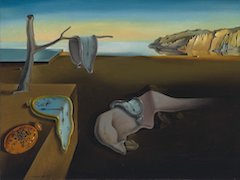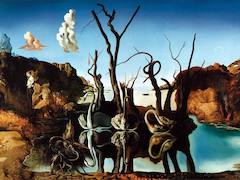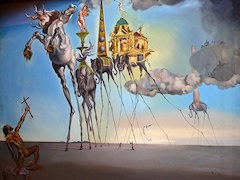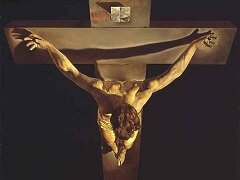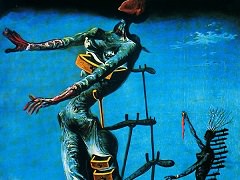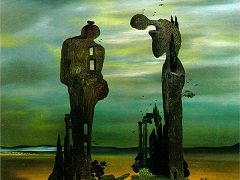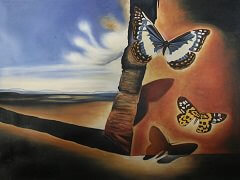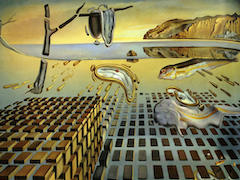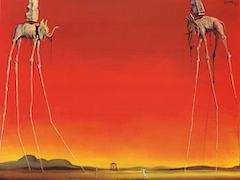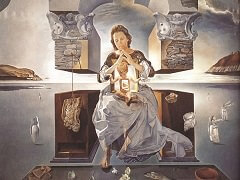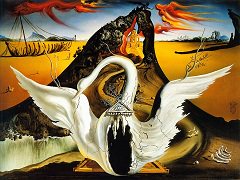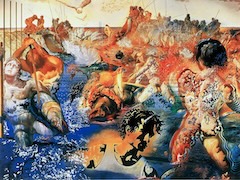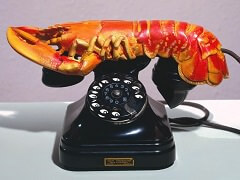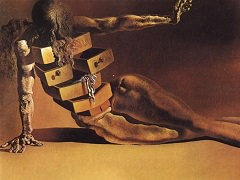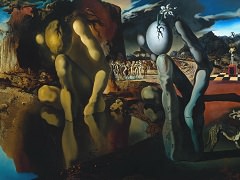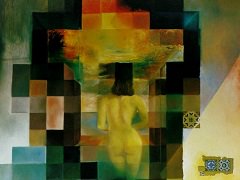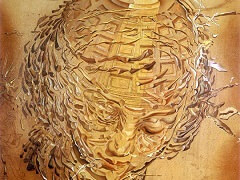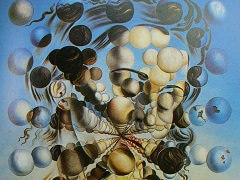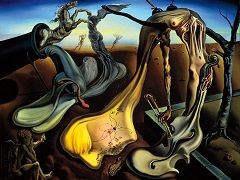Sun Table, 1936 by Salvador Dali
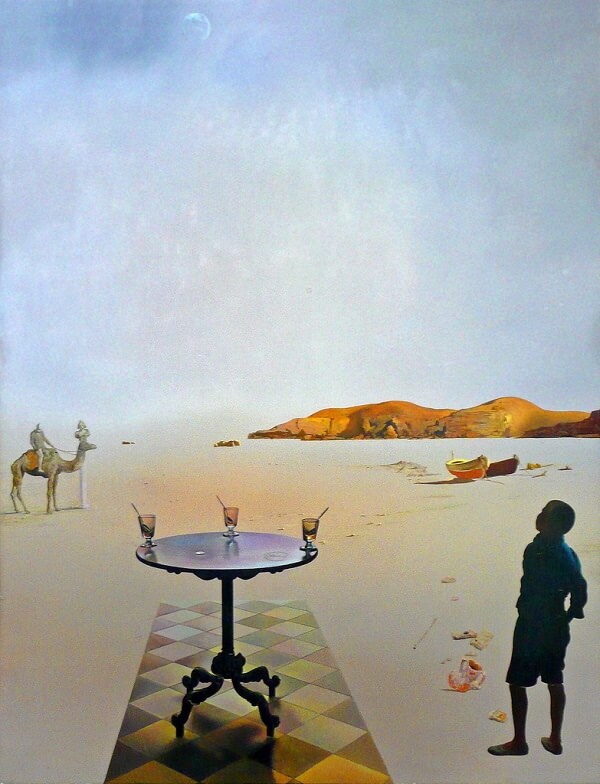
Like Paranoiac-Critical Solitude, Sun Table shows Dali moving away from purely erotic and autobiographical obsessions while continuing to set his surreal encounters against a local background, the empty Ampurdan plain and the coast around Cadaques. The table is a humdrum object from a local cafe, supporting three coffee-glasses and a single coin.
The tiles are a copy of those that were being installed in Dali's Port Lligat house. These are mysteriously placed in a landscape with beached boats and a stretch of coastal land that can evidently be reinterpreted as a desert. Or at least that is what the presence of the camel suggests. Its egg-headed rider is faceless, unlike the bust which, though actually supported by a column, seems to rest on the camel's head. A piece of ancient pottery lies in the sand. Close to it, small but unmistakable, is another camel: on a pack of American cigarettes of a particularly well-known brand. The boy, seen in silhouette, may represent Dali.

